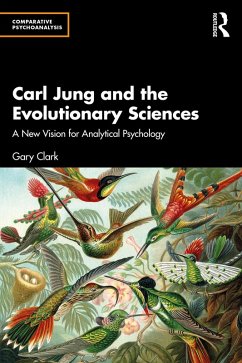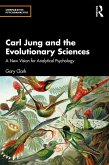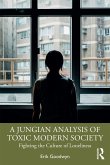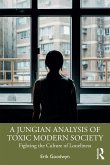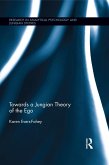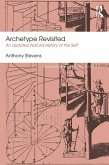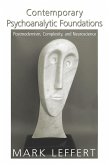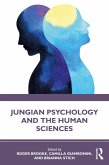Dieser Download kann aus rechtlichen Gründen nur mit Rechnungsadresse in A, B, BG, CY, CZ, D, DK, EW, E, FIN, F, GR, HR, H, IRL, I, LT, L, LR, M, NL, PL, P, R, S, SLO, SK ausgeliefert werden.
Erik Goodwyn, MD, Co-editor-in-chief, International Journal of Jungian Studies, author of The Neurobiology of the Gods (Routledge, 2012) and A Jungian Analysis of Toxic Modern Society: Fighting the Culture of Loneliness (Routledge, 2024)
'This inspiring and erudite book focusses on C.G. Jung as a pioneer explorer of human consciousness. Dr Clark argues that Jung's insights into the human psyche were far ahead of his time and are only now being appreciated through recent developments and interest in experimental and evolutionary neuroscience. Jung stressed that humans possess a unique impulse to alter consciousness as a primitive form of psychotherapy through ritual, dance and music. One derivative is an increased interest in research into psychedelic neuroscience that delineates unconscious processes and argues the existence of Homo sapiens as the Dionysian Primate. Brimming with rich, well researched and widely applied socio-anthropological insights, Dr Clark's important contribution infuses the reader with renewed enthusiasm to explore depth psychology within the context of neuroscientific findings.'
Dr Elizabeth Brodersen, Jungian Training analyst and Supervisor, CGJIZ and editor of Jungian Dimensions of the Mourning Process, Burial Rituals and Access to the Land of the Dead; Intimations of Immortality, Routledge, 2024
'It is difficult to overstate the range and depth of Gary Clark's erudition, or the importance of his message for students and practitioners of analytical psychology. Rooting himself in the tradition of Naturphilosophie, he weaves perspectives from evolutionary theory, primatology, neurology, psychology, comparative religion, anthropology and philosophy in a compelling synthesis, arguing that much contemporary post-Jungian theory represents an abandonment, indeed, a betrayal of Jung's original project and vision for the study of the collective unconscious. In the process, he gives new meaning and relevance to Jung's concepts of anima and animus, eros and logos and much else besides. An inspired and inspiring tour de force.'
Daniel Burston, author of Anti-Semitism and Analytical Psychology: Jung, Politics and Culture

